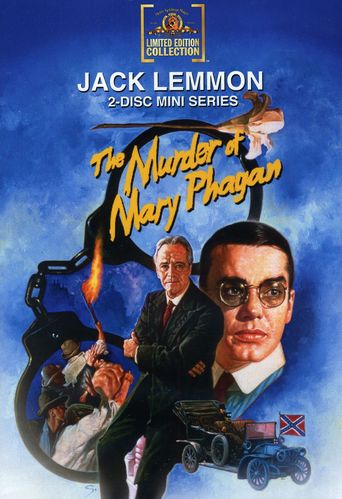

Lack of good storyline.
... View MoreA-maz-ing
... View MoreVery good movie overall, highly recommended. Most of the negative reviews don't have any merit and are all pollitically based. Give this movie a chance at least, and it might give you a different perspective.
... View MoreThe movie is made so realistic it has a lot of that WoW feeling at the right moments and never tooo over the top. the suspense is done so well and the emotion is felt. Very well put together with the music and all.
... View MoreMurder of Mary Phagen, The (1988) **** (out of 4)Extremely powerful drama about the murder of 13-year-old Mary Phagen in the factory she worked out in Atlanta, 1913. A determined prosecutor (Richard Jordan) pins the crime on a Jewish manager (Peter Gallagher) who claims his innocence. He's eventually found guilty due in large part to the testimony of a black janitor (Charles S. Dutton) who would normally seem like an unlikely person to get to testify. All of this eventually ends up in the lap of Gov. John Slaton (Jack Lemmon) who will be leaving office soon but must decide whether or not to overturn the conviction, which looks to have been made because the man was Jewish. This story was altered and told in 1937 masterful THEY WON'T FORGET with Claude Rains but this version here is just as good and just as powerful. The movie clocks in at four hours if you include the commercial breaks so it's a long movie but it never felt that way as I was so caught up with what was going on that the movie seemed to run just a few short minutes. The masterful performances make this a must see but so does the story, which is as powerful as an courtroom drama that I've seen. I wasn't overly familiar with the case so I was really hanging on the edge of my seat all through the original case, the Governors investigation as well as the aftermath that followed. I was really shocked to see what type of racism was being used and how much of the bitterness of Atlanta went back to the Civil War days. From what I've read, this film was pretty faithful to the actual events, which makes one scratch their head and question everything that was done. I won't ruin the ending but how everything plays out is just incredibly sad and pathetic.This made-for-TV drama certainly has the drama down as the thing will leave you in suspense from the opening moments to the very final scenes. The performances are great from the veterans but we also get some fresh faces who would become quite famous over time. Kevin Spacey plays an alcoholic reporter who brings the case the media attention. William H. Mac has a small bit as a relative to the dead girl. Gallagher is extremely laid back in his role and delivers a marvelous performance as you can't help but feel sorry for him. The actor certainly digs deep and manages to bring out a lot of emotions without screaming or going over the top. Jordan is equally as great as the seedy prosecutor who might be hiding a few secrets of his own and Dutton nearly steals the film as the man with too many questions of his own to be a so-called witness. Robert Prosky and Kathryn Walker also turn in fine work. Then there's the legend Lemmon who turns in one of the best and most powerful performances of his career. I know that's saying a lot considering how many great roles he has had but he really delivers some strong emotion here and his final speech is extremely touching even if he doesn't say too much. The pain and anger in Lemmon's eyes is all we have to see to know what he feels. The way Lemmon invests himself into the role and the character's motives for trying to bring justice to this case was very believable and heartfelt.
... View MoreI feel this movie is exceptional in the true life account of the death of little Mary Phagan. It truly depicts the working of children in factories prior to child labor laws. It shows the poverty of the time. It depicts how the lack of education and open mindedness can lead people to do deeds not in line with their professed beliefs. It depicts various cultures and shows how everyone can enjoy music, dance, celebrate and enjoy life. And, that life goes on even after great tragedy. It shows how little children are influenced by adults out of fear. It depicts the lack of forensic science now used to solve crime. My father was a child laborer; so, this picture is of great interest to me in learning more about the long hours and little pay he earned during that time period. A great historical epic worth every minute that no one interested in U.S. history should miss.
... View MoreThe basic story..the railroading and lynching of Leo Frank is true.Their are certain melodramatic touches-Governor Slaton never actually exposed the real killer, for one thing-but on the whole, this is an extremely accurate, and insightful historical drama. The performances by a superb cast are uniformly excellent, and the rich details of the production design succeed in accurately conveying a time and a place that are closer to us than many would like to think.In short, an earnest, stirring, well made TV movie-a "9"
... View Moregeorge stevens ,jr. always does quality things as was this. william hale,ii was super leading the plot to climax of theme and drew out best in characters. since the initial showing i have heard many others express their opinion that this was a super presentation. congrats george and billy hale and the fine extras cast of richmond,va. area.
... View More